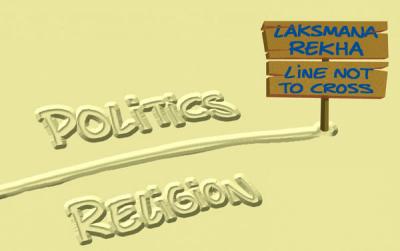Vice-Prime Minister Anil Bachoo’s recent daring and calculated proclamation that there should be no distinction between politics and religion must not only have raised a few eyebrows, but also called into question the legitimacy of the country as a secular state from a constitutional viewpoint.
The targeted audience and timely deliverance of Mr Bachoo’s speech must not be underestimated and his challenge for anyone else to prove him wrong has fallen on deaf ears, it seems. It is not an “off the cuff” remark by any stretch of imagination and thankfully it never gained any traction, to the Vice-Prime Minister’s and his peers chagrin perhaps, rather it was given the cold shoulder it richly deserves. If truth be told, however, there is definitely a marked element of sincerity in Mr Bachoo’s statement, but one is left perplexed as to his real motive behind this unwarranted and unexplained public statement.
To be fair, it would be ridiculous to ask our politicians to switch off their religious beliefs and not to allow such beliefs to influence their political agendas. It would be disingenuously surreal either to believe that some religious beliefs do not have a direct bearing on policy making, shape our human values, influence our decision-making process and affect our political stances when faced with such controversies like abortion, euthanasia, and same sex marriage.
As individuals, our beliefs act like natural precursors to our behaviours and to the consequences of our actions. It is therefore unrealistic to think that politicians would refrain from invoking their religious beliefs to assist them formulating some of their political agendas at the very least. Otherwise belonging to a religion becomes obsolete, and pointless if it ceases to become that source of inspiration that guides us in our daily life.
It is equally true that some politicians do wear their religion on their sleeves in order to attract sympathy from their respective religious constituencies. This synergy of views and emotions is not necessarily awe-inspiring for there lies the distinct possibility for politicians to be economical with the truth about their religious beliefs so they could get a seat at the table of political power. Secularism or segregating religion and state/politics on the other hand, removes this kind of opportunism and dominance of one religion impacting on government policies.
The polarization of religion and politics could not be more defined in as much as religion is based on faith while politics are based on facts. Too much intertwining of religion and politics has been known to be responsible for the creation of theocratic states whereby policies are fashioned mainly on the basis of religious views to the point where such countries are no longer perceived as being free and democratic, but rather religious states and breeding grounds for extremism, nepotism, conflicts and injustice at the expense of the minority groups.
Politicians’ prerogative is to serve the country and its people first and foremost, irrespective of their religion, caste, ethnicity, nationality etc… Poverty and sufferings are not confined to just one religion and must be tackled by the state without any other unrelated considerations. In a modern democratic country of “one people, one nation”, it is incongruous to validate one set of beliefs against another without discriminating against people of other religions.
Theocracy, No Sir !
- Publicité -
EN CONTINU ↻
- Publicité -

